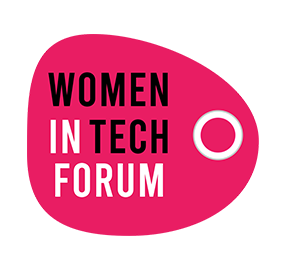During the pandemic, diversity and inclusion took somewhat of a backseat for many organisations who were grappling with revenue losses, disruptions to supply chains and the challenge of engaging with their workforce in an entirely different way.
Advancing workplace diversity is now more important than ever before. Since the death of George Floyd, many organisations have now started to invest heavily in the areas of diversity, inclusion and belonging.
Customers are also looking at their supply chain and are now only working with organisations with a proven commitment to sustainable and diverse work practices, and employees are looking to their organisations to make a difference – not to mention the legal requirements and the social responsibility of doing the right thing.
Inspired Business Media and Women in Tech forum held an industry think-tank with senior leaders and heads of diversity and inclusion for some of the most well-known brands in Britain to discuss where they are on their diversity journey and how technology can enable this.
There were 3 key themes that came out of the think tank…
Diversity is not limited to gender
Many organisations have historically focused on building a gender-balanced workforce. However, diversity is so much more than gender. Diversity encompasses all parts of the human experience from age, culture, ethnicity, neurodiversity to sexual orientation and life experience to name a few.
Organisations need to create an environment where all employees regardless of gender, ethnicity or sexuality are able to bring their whole authentic self to work. How can we expect people to do their best work if they feel compelled to leave part of themselves at home?
Whilst there isn’t a one-size fits all approach, for true inclusion to happen, diversity needs to be incorporated into the organisational design at every level from the office of the CEO to grassroots employee resource groups and everyone in between.
Board-level sponsorship is key
Diversity should be part of your organisational DNA and embedded throughout your employee experience. Gone are the days of reactive, outdated policies led by your human resources team. Diversity, equity, inclusion and belonging must be much more than a program, they should be woven into the values and culture of your organisation, and lived everyday.
Board sponsorship is key, with programs owned and driven across every-level of the organisation from the c-suite to grass-root employee resource groups.
Where I’ve seen this work well is where the employee resource group leads are each aligned to a board sponsor and come together monthly to share the voice of each of the diverse groups.
Creating this environment where people feel psychologically safe to speak up and where decisive action is taken based on the grassroots feedback is key to advancing the diversity agenda internally.
Forward-thinking organisations are not just focusing their efforts internally, they are extending their efforts to focus on driving positive change in the world, supporting human connectivity and purpose in our wider society.
How to attract a diverse talent pool
In a post-covid, post Brexit world, many organisations are struggling to attract and retain talent, not-to mention attracting a diverse talent pool.
What became clear in the think-tank is that organisations need a complete review of their recruitment practices from the images they use on the website, to creating job adverts using inclusive language, blind CVs and educating managers on unconscious bias in recruitment.
Organisations are increasingly widening their network for recruitment by moving beyond their go-to job boards and talent pools to focusing on more specialist networks such as LGBT Jobs, Neurodiversity Network and Women in Tech forum.
In an environment where we are seeing a major talent shortage, the risk of not having diverse and inclusive recruitment practices can seriously harm an organisation’s growth and reputation in the market.
Conclusion
Across all of these key themes, what became clear in the think-tank is that whilst the topic of Diversity, equity, inclusion and belonging isn’t new, organisations need to re-examine traditional DEIB practices and create a modern approach to developing a more inclusive and diverse organisation.
We are still very much at the beginning of modernising the workplace and creating environments where everybody feels included and where every voice is heard. Whilst it may take many years for these changes to take effect, if we each take personal responsibility for driving change and emulating the behaviours we’d like to see in others, together we can make a difference.
By Angie Vaux
Founder & CEO, Women in Tech forum

